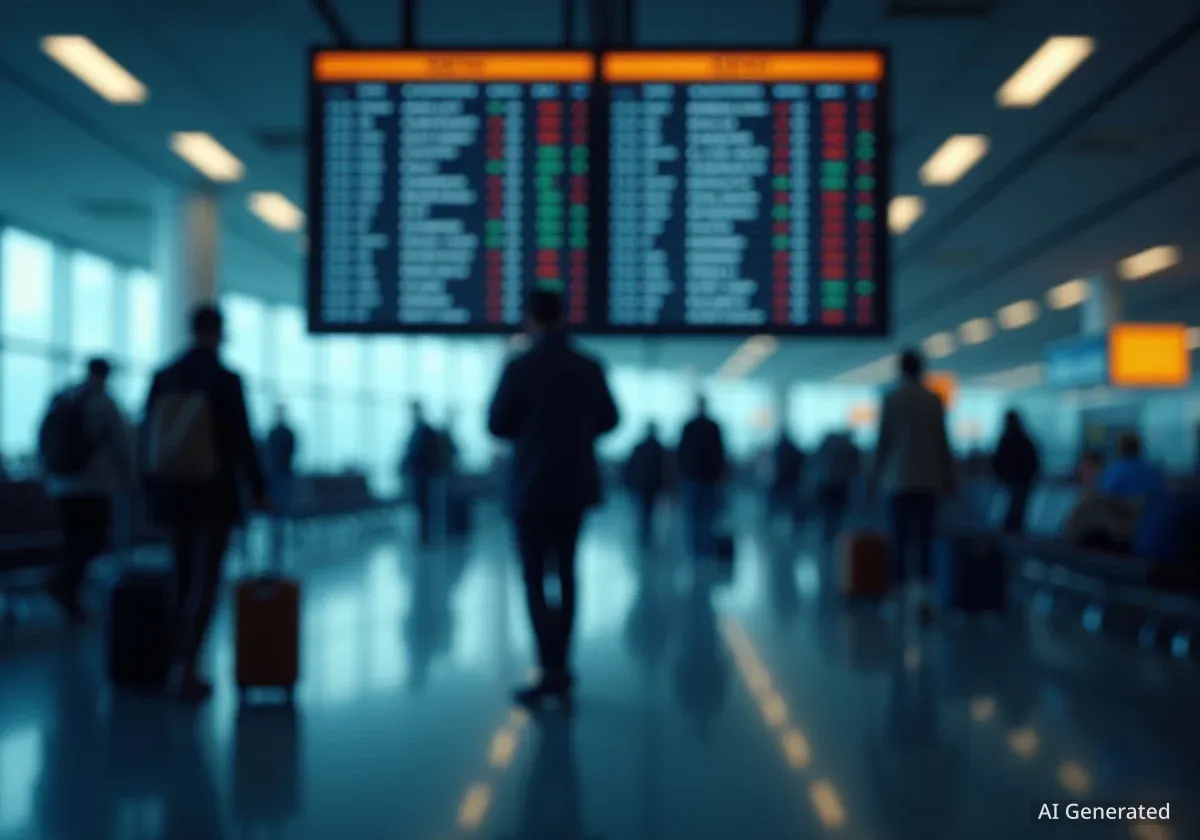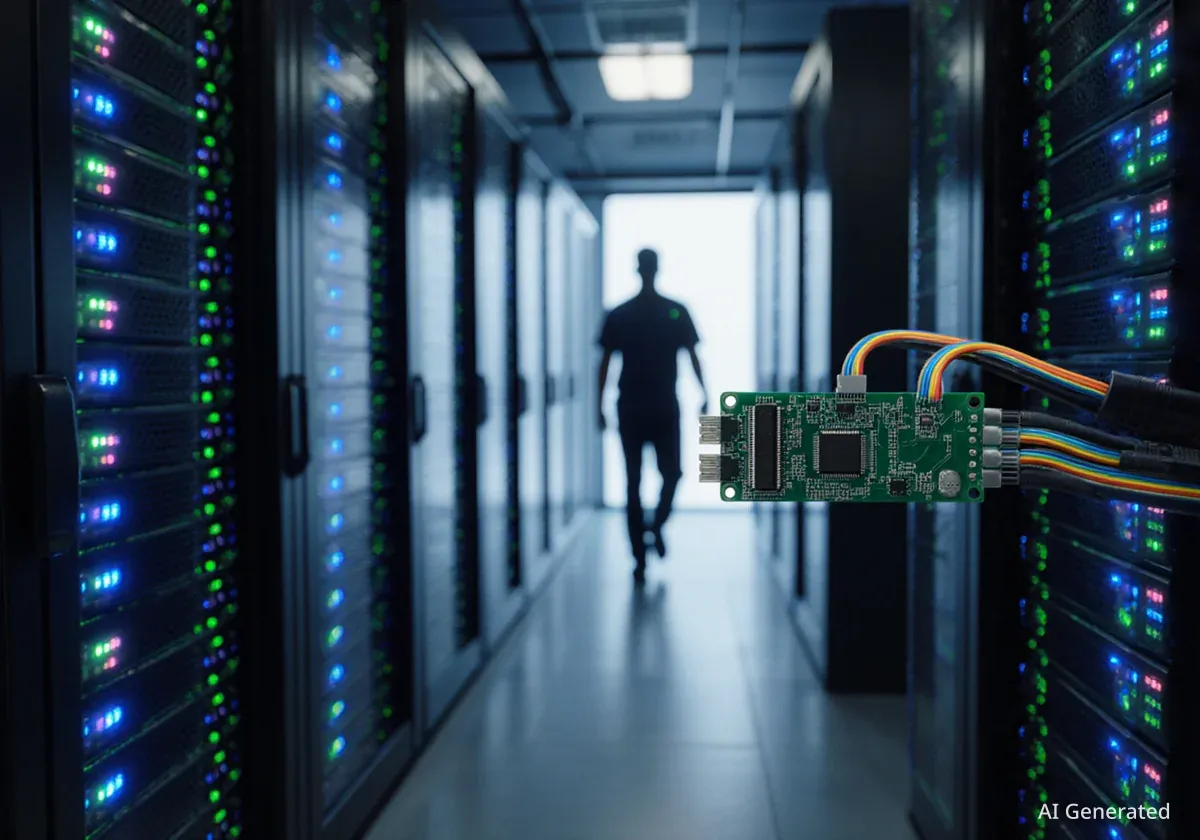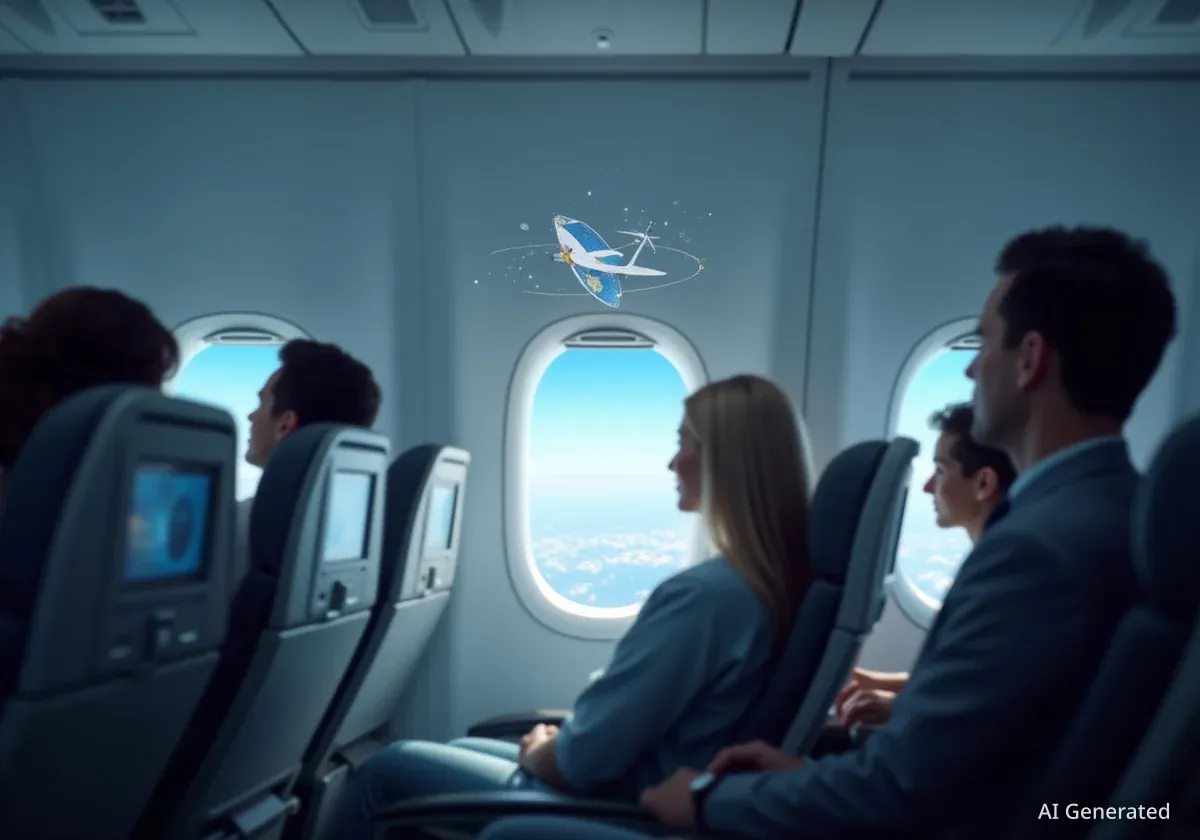A suspected ransomware attack targeting a U.S. technology vendor has led to significant flight disruptions at major European airports since Friday. This incident highlights the vulnerabilities within the aviation sector's interconnected systems, affecting thousands of travelers.
Key Takeaways
- A cyberattack disrupted flights across Europe.
- The target was Collins Aerospace, a U.S. check-in technology provider.
- Heathrow Airport and other hubs experienced delays.
- Aviation sector's reliance on third-party vendors creates risks.
- Authorities are investigating the scope and response.
Widespread Impact on European Air Travel
Flights at several international airports across Europe experienced delays and cancellations. London's Heathrow Airport was among the most affected hubs. The disruptions began on Friday and continued through the weekend into the following week.
The cyberattack specifically targeted Collins Aerospace, a company based in the United States. Collins Aerospace supplies critical check-in and boarding technology to numerous airlines globally. This dependence on a single vendor meant the attack had a broad reach.
Fact File: Collins Aerospace
- Parent Company: RTX (formerly Raytheon Technologies)
- Services: Provides check-in and boarding technology for airlines
- Previous Incident: Targeted by a cyberattack in 2023, claimed by BianLian
Official Response and Airline Operations
The National Cyber Security Center (NCSC) in the U.K. immediately began working on the issue. They collaborated with Collins Aerospace, law enforcement agencies, and the U.K. Department for Transport. The goal was to understand the full extent of the incident and coordinate a response.
"While the underlying problem was outside our influence, we have continued to support our airline partners and passengers to get away as timely as possible over the weekend," a Heathrow Airport spokesperson stated via email on Sunday.
Heathrow officials issued an apology for the delays. They also advised passengers to adjust their arrival times. For international flights, passengers were asked to arrive three hours early. For domestic travel, a two-hour early arrival was recommended.
Airline Performance Amidst Disruptions
British Airways reported on Sunday that it managed to operate approximately 90% of its scheduled flights on Saturday. The airline anticipated running a nearly full schedule in the days that followed. This indicates efforts to mitigate the impact.
Brussels Airport also reported a limited impact on its flights by Tuesday. This was due to the development of alternative check-in methods. These quick adaptations helped reduce further delays for travelers.
Underlying Vulnerabilities in Aviation Technology
This incident brings renewed attention to the cybersecurity risks within the aviation sector. Concerns were raised earlier this year about the industry's ability to withstand major cyberattacks. A report by the Foundation for Defense of Democracies highlighted these issues.
Aviation Sector Cyber Risks
A report earlier this year pointed out two main vulnerabilities in the U.S. aviation sector:
- Aging Technology Infrastructure: Many systems rely on older software and hardware, which can be less secure.
- Dependence on Connected Technologies: The increasing reliance on interconnected systems and third-party vendors creates more potential entry points for attackers.
Collins Aerospace is a subsidiary of RTX, a major aerospace and defense contractor. The company had previously faced a cyberattack in 2023. Rafe Pilling, director of threat intelligence at Sophos, confirmed that BianLian claimed responsibility for that earlier incident.
A spokesperson for Collins Aerospace did not immediately provide a comment on the recent attack. The Federal Aviation Administration (FAA) confirmed that a separate disruption in Dallas the previous week was not connected to the Collins attack.
The Broader Cybersecurity Landscape
The aviation industry is a critical infrastructure sector. Its reliance on complex, interconnected digital systems makes it a prime target for cybercriminals. Ransomware attacks, in particular, aim to disrupt operations and demand payment, causing significant economic and operational damage.
Experts emphasize the need for robust cybersecurity measures. These include regular risk assessments, system modernization, and strong partnerships between government agencies and private companies. Protecting these vital systems is essential for global travel and economic stability.
The ongoing investigation will aim to uncover more details about the attack's nature and the perpetrators. Learning from this incident will be crucial for improving the resilience of aviation systems worldwide against future cyber threats.





